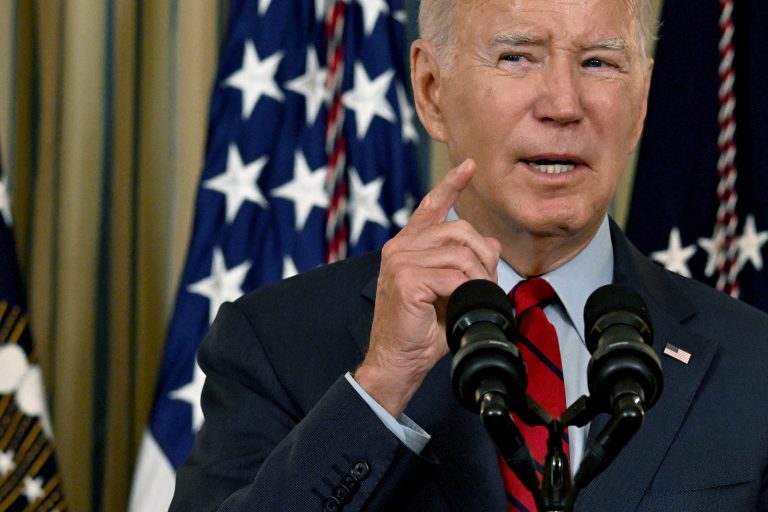While recession fears are waning and consumer spending saw a respectable uptick in July, experts are indicating that Americans need to remain skeptical of the Biden administration’s messaging that the economy is “booming.”
In recent months, economic indicators have been looking up, prompting the Biden administration to declare that their economic policies, or “Bidenomics” are working.
However, a number of business and industry leaders are not completely convinced, and recommend caution moving forward.
A key metric that can reveal the health of an economy, particularly in the United States, is consumer spending, which accounts for around 70 percent of the U.S. gross domestic product.
Data from July, the most recent available, saw solid growth in consumer spending in July, a feather in the hat for the Biden administration. The month saw Americans opening up their wallets to indulge in hobbies, sporting goods and clothing. The uptick prompted Goldman Sachs to adjust their third-quarter gross domestic product forecast up to a 2.2 percent annualized rate.
Success
You are now signed up for our newsletter
Success
Check your email to complete sign up
However, on Monday Sept. 11, at the Barclays Global Financial Services Conference, Jamie Dimon, CEO of JPMorgan Chase, shared some sobering insight.
“To say consumer is strong today, meaning you are going to have a booming environment for years, is a huge mistake,” Dimon said.
Consistent with his comments, there are signs that July’s splurge in spending may be short-lived.
READ MORE:
- As US Economy Stagnates, 30-year Mortgage Rate Soars
- German Economy Shrinks for the Second Quarter in a Row Amidst a Slew of Challenges
- Proposed CCP Policy Threatens Rare Bright Spot in China’s Economy
Americans’ spending intentions
According to Deloitte, referencing August data, Americans are worried about their financial health and many are taking steps to insulate themselves from a cash shortfall like delaying or entirely eliminating big purchases.
Deloitte’s findings means that the July numbers the Biden administration is touting, may just be a blip in a larger pattern.
Deloitte says that Americans’ spending intentions “remain on a long-term downtrend.”
In addition, experts also expect the Fed’s aggressive interest rate hikes are likely to weigh heavily on domestic demand.
Another key indicator, consumer confidence, saw a sharp uptick in July as well, according to the Conference Board, however it immediately plummeted in August.
“The Expectations Index — based on consumers’ short-term outlook for income, business, and labor market conditions—declined to 80.2 (1985=100) in August, reversing July’s sharp uptick to 88.0,” the Conference Board wrote.
Historically, if the Expectations Index falls below 80, it would signal a recession within 12 months.
READ MORE:
- NYS: Proposed New York-only Work Visas for Migrants Met With Stiff Opposition and Support
- UK Business Delegation Intends to Throw Snake Eyes at Taiwan SEMICON Event
- China Appears to Make Major Breakthrough in Semiconductor Tech, Skirting US Trade Restrictions
Fears of stagnation
While inflation, and the ensuing cost-of-living crisis, still weighs heavily on Americans’ pocketbooks, the risk of a stagnating economy is real, and could have a devastating impact on American lifestyles.
Stagflation is defined as sluggish economic growth coupled with a high rate of inflation and unemployment.
Chris Williamson, chief business economist at S&P Global Market Intelligence, recently said, “A near-stalling of business activity in August raises doubts over the strength of U.S. economic growth in the third quarter,” adding that new orders are plummeting, input costs are surging and the pace of job creation is slowing.
At Monday’s conference, Dimon said that two key factors worry him, the central banks aggressive rate hikes and governments “spending like drunken sailors.”
“I think there’s a false sense of security that those two things will end up being OK. I don’t know,” Dimon said.
In addition, another key metric, the number of mortgage applications, dropped last week to its lowest point since 1996.
So while the Biden administration does have cause to celebrate, caution remains in order.
















